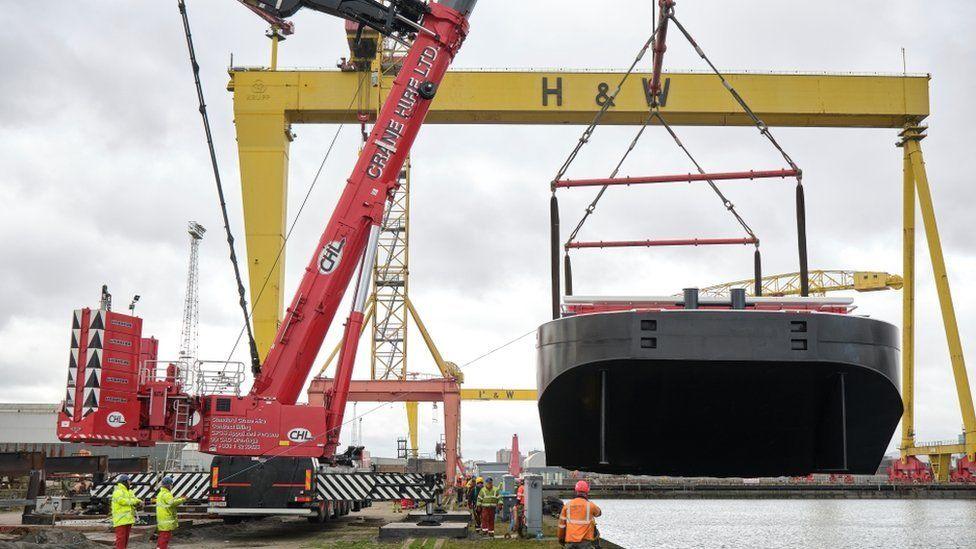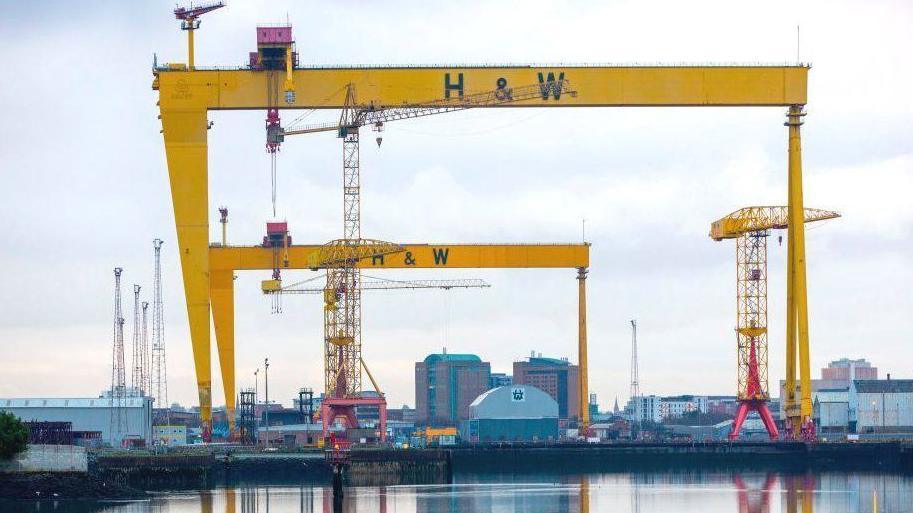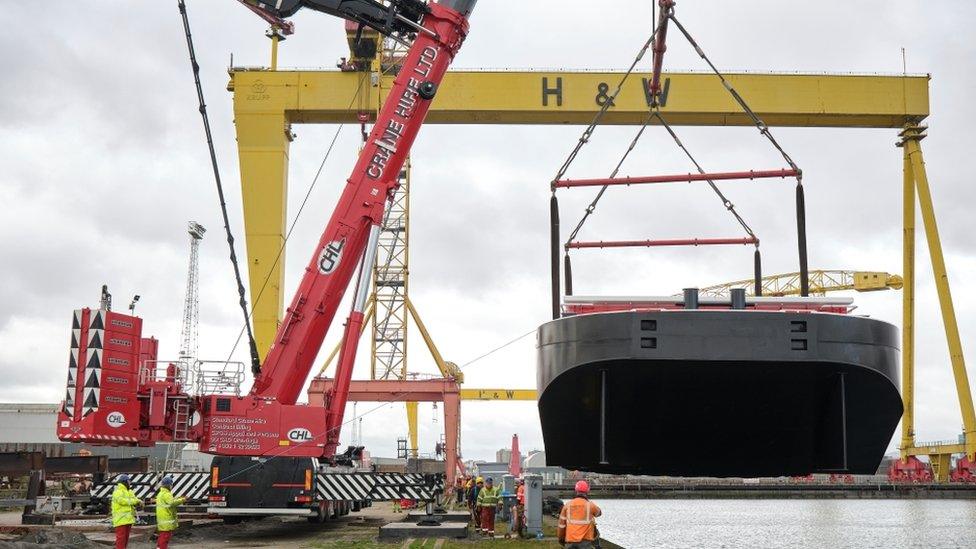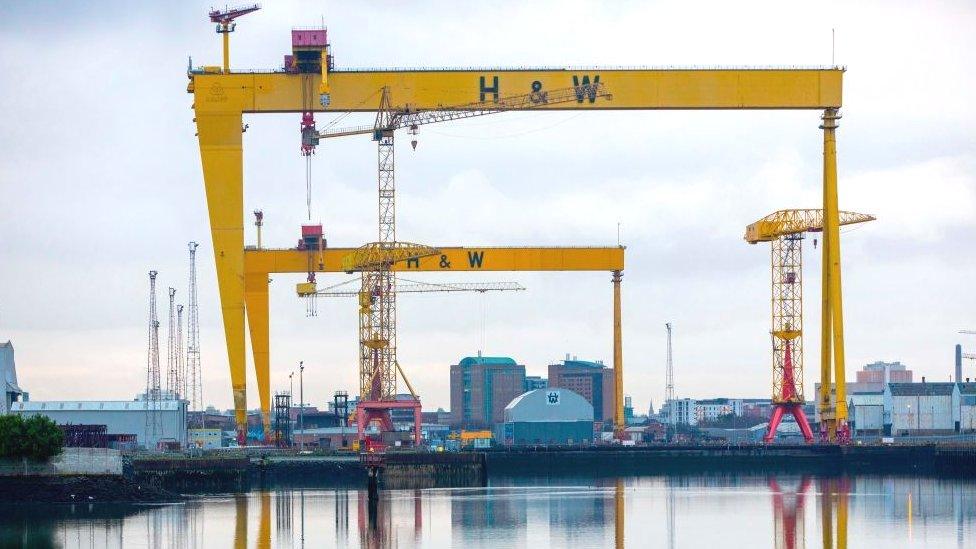Harland and Wolff posts £43m loss

Harland and Wolff has reiterated its need for a £200m government loan guarantee to help stabilise its finances
- Published
The Belfast-based shipbuilder Harland and Wolff lost another £43m last year, its latest financial statement shows.
It has temporarily suspended trading in its shares because it has not been able to publish independently audited accounts on time.
It expects to publish those accounts next week.
The company has reiterated its need for a £200m government loan guarantee to help stabilise its finances.
Need to refinance £80m loan
It said the delay in its accounts was due to discussions with its auditors about the correct way to account for revenues from complex, multi-year contracts.
It added that agreement had been reached and "the company will now progress to complete the audit quickly and expects to publish its 2023 annual report during the week commencing 8 July 2024".
Harland and Wolff was bought out of administration in 2019 and in 2022 was part of the consortium which won a major contract to build three Royal Navy support ships.
The company has had to invest significantly to prepare for that work and has been heavily loss making.
The audited annual accounts for 2022 showed turnover of £28m and a loss of about £70m.
In the previous 17 month accounting period, the loss was more than £25m.
The company has applied for a £200m loan guarantee, which is essential for its financial stability.
It needs to refinance an £80m high interest loan and take on new borrowings as it scales up its operations.
It is seeking to borrow from a consortium of UK banks, but needs the government to act as guarantor - meaning if the loans were to go bad the state would step in to repay the lenders.
The company said it expects the government to reach a decision on the guarantee after this week’s general election.
It added that should there be any "any material delays" to guarantee, its ability to "execute new and large contracts would be adversely affected".
Related topics
- Published18 May 2024

- Published21 April 2023

- Published16 November 2022
